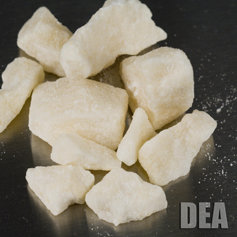Cocaine Addiction Information

Often thought to be one of the most addictive substances in the world, cocaine has been a highly problematic street drug in the United States for decades. Cocaine is a mind-altering stimulant made from the leaves of the coca plant. Cocaine appears in the form of a fine, white, crystal-like power. It increases the levels of dopamine within the brain, sending a rush of euphoria through the body.
Cocaine is extremely addictive not only because of the effect it has on the individual’s mind, but the drug is also addictive on a physiological level. The flood of dopamine within the brain caused by the presence of cocaine reinforces cocaine-consuming behavior, as the brain’s reward circuitry adapts to the excessive dopamine caused by cocaine consumption. But as the brain’s reward center changes, it also builds up a tolerance to the presence of cocaine and its metabolites within the brain. As the individual continues to use cocaine, the brain’s reward center will become more and more accustomed to the drug, requiring higher and higher dosages in order to achieve the same effect.
Cocaine and Crack Cocaine

Cocaine and crack cocaine represent two forms of the same drug. While cocaine and crack cocaine, once consumed, have similar effects on the user, crack cocaine creates significantly higher levels of cravings and rates of addiction. Powdered cocaine is usually consumed intranasally and can be dissolved and administered intravenously.
Crack cocaine is a freebase form of cocaine that can be smoked, meaning it has been converted from its salt to its base form by heating with ether or boiling it with sodium bicarbonate (baking soda). In this form, the cocaine freebase provides a powerful high similar to injection of the cocaine salt. Crack cocaine can appear as hard crystalline rocks or soft, buttery cookies. The name crack comes from the crackling noise that is made when smoked.
Considering the Consequences of Cocaine Use and Addiction
When someone uses cocaine, right from the very first moment, the drug begins to have a series of powerful, adverse effects on the user. And as one continues to use the drug, those effects are simply amplified.
On a physical level, the consequences of cocaine use can range from mild heart palpitations to a fatal overdose. Mentally, cocaine can cause anything from slight irritability to total mental instability and severe paranoia. For one’s relationships, people who use cocaine risk losing friends and even destroying relationships and surrendering their parental rights. Cocaine use can also cause the loss of his or her job, send one into bankruptcy, and even result in imprisonment.
Short and Long-Term Effects of Cocaine Addiction

Cocaine use has the potential for creating very harmful effects, both in the short-term and in the long-term. Some of the short-term effects include irritability, aggression, extreme paranoia, and bizarre, unpredictable behavior. Some of the physical effects include dilated pupils, constricted blood vessels, high blood pressure, raised body temperature, irregular heartbeat, restlessness, and even death.
Cocaine causes thousands of deaths each year. And more recently, those deaths are increasing as drug traffickers and dealers have begun adding synthetic opioids like fentanyl to batches of cocaine, making the drug even more dangerous.
If one uses cocaine for extended periods, other harmful effects will begin to set in. People who snort cocaine may experience a loss of their sense of smell, frequent nose bleeds, persistent runny nose, and problems swallowing. Smoking cocaine damages immune response, making addicts more likely to develop lung infections like pneumonia. Smoking cocaine can also lead to asthma and a persistent cough. Consuming cocaine orally can lead to deterioration of the bowel cavity, and IV cocaine use increases one’s risk for contracting bloodborne diseases such as HIV/AIDS and hepatitis C.
Indicators of Cocaine Addiction – How to Tell if a Loved One is Using Cocaine
While cocaine addicts may take steps to hide their use, there are often telltale signs regardless. Some of the signs of cocaine use/addiction include:
- Dilated pupils
- Loss of appetite
- Being awake for long periods
- Overconfidence, over excitement, excessive energy
- Paranoia, anxiety, nervous hysteria
- Runny nose, frequent sniffles, frequently wiping the nose, white powder around the nose
- Missing work, missing school, not performing well at work or school
- Financial problems, legal issues, troubles with spouses, significant others, or one’s children
- Depression, mood swings, irritability, aggression, etc.
Cocaine use can rapidly progress to addiction and a hazardous, even lethal scenario. If one suspects that a family member or loved one is using cocaine, the first step is to ascertain if that is indeed the case. If it is, the person must be helped into a drug treatment center as soon as possible.
Sources:
